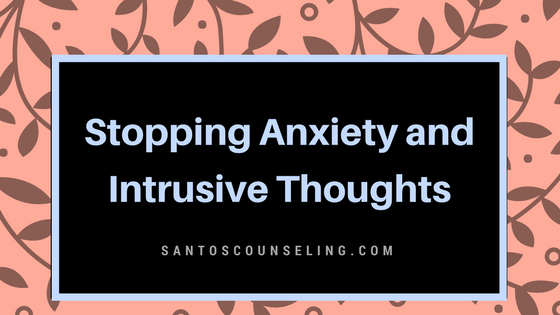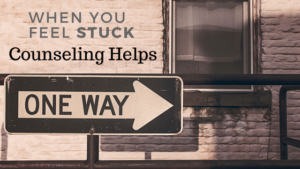Anxiety can take many forms. You may experience subtle hints of anxiety throughout an entire day with symptoms of changes in heartbeat, nervousness, and/or worry for no particular reason. Anxiety may come about during tense situations such as when one is expecting to hear back from a job or during difficulty moments in life.
Generalized Anxiety Disorder is noted when a person experiences the following symptoms for a period of 6 months.: worry, irregular changes in heartbeat, difficulty concentrating or focusing, muscle tension, and irregular changes to sleep and mood. For a full definition please reference DSM 5 GAD.
The intrusive thoughts that accompany anxiety disorder can be debilitating. Leaving a person stuck or insecure in their decisions. To overcome the challenge and manage the symptoms associated to anxiety, one can practice mindfulness.
The practice of mindfulness includes:
1. Increasing awareness of the symptoms associated to the anxiety disorder can support with the overall management of anxiety and intrusive thoughts.
An example of this would be to take time reflecting on past experiences of anxiety. Asking questions (what happened? How did I feel? What did I feel?). Overall, the more questions asked the better one can understand the symptoms brought on by anxiety.
Common symptoms of anxiety include:
- Problems focusing or concentrating.
- Difficulty making decisions or making up your mind.
- Daydreaming or feeling as if you are in a “trance” like state.
- Hand tremors.
- Feeling overly sweaty.
- Nervous.
- Fearing something bad could happen.
- Emotionally struggling due to a lack of control.
- Feeling on edge or moody.
- Easily provoked or agitated.
2. Building coping skills to manage the anxiety
Coping skills for anxiety include:
- Deep breathing.
- Going for a walk.
- Exercise.
- Get better sleep.
- Stress ball.
- Meditation.
- Counseling.
- Counting from 20 to 0.
- Role playing.
- Visualizing what will happen prior to engaging in the act.
- Building positive statements to address the intrusive thoughts.
3. Identifying triggers that promote anxiety or escalate symptoms associated to anxiety.
Triggers to anxiety are often dependent on the person. For instance, one may struggle with social settings and if asked to engage in public speaking, they may experience anxiety.
Common triggers to anxiety include:
- Social settings
- Work stress
- Life changes such as changing homes or awaiting a child
- Abuse
- Death or loss
- Family difficulties
- Relationship problems
- Trauma
To receive support with anxiety and intrusive thoughts please call 336-707-1723 or fill out the form below.




